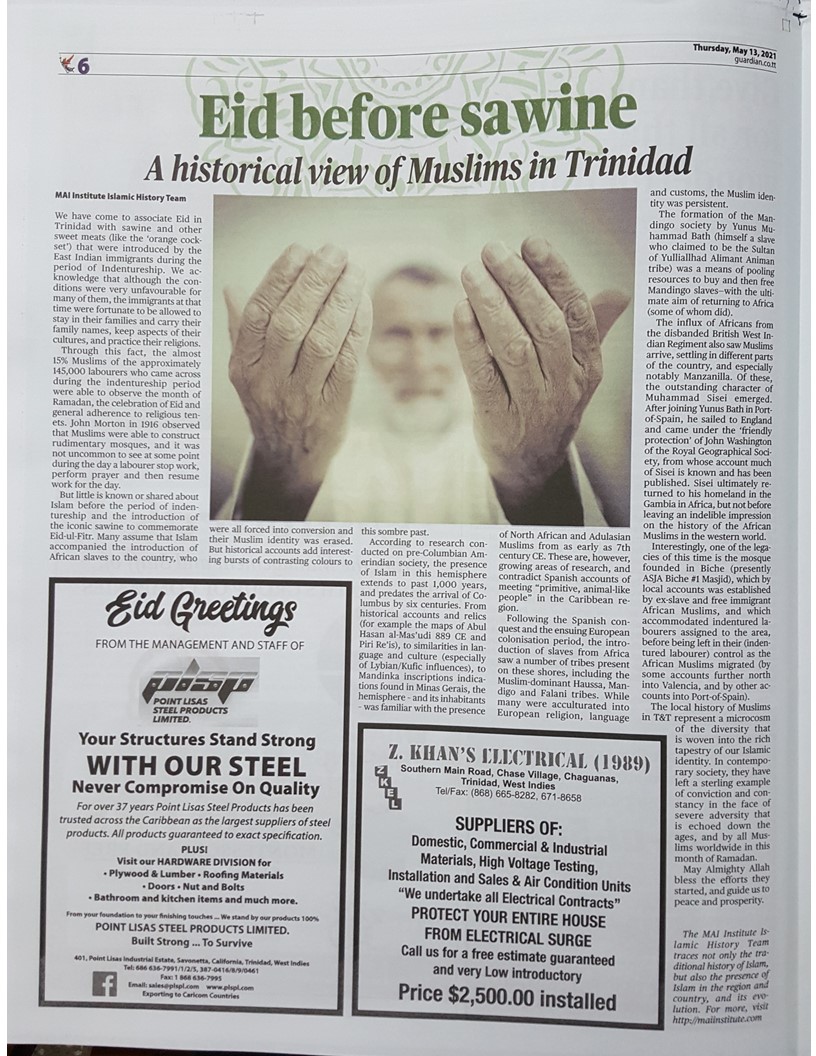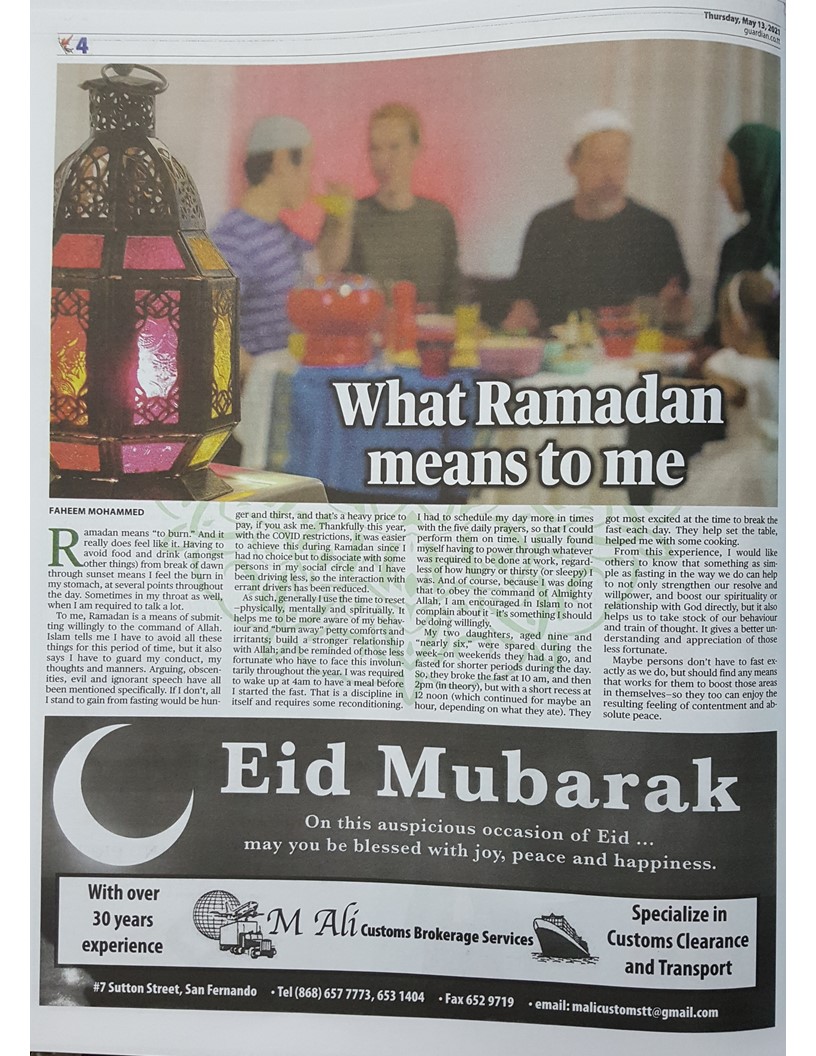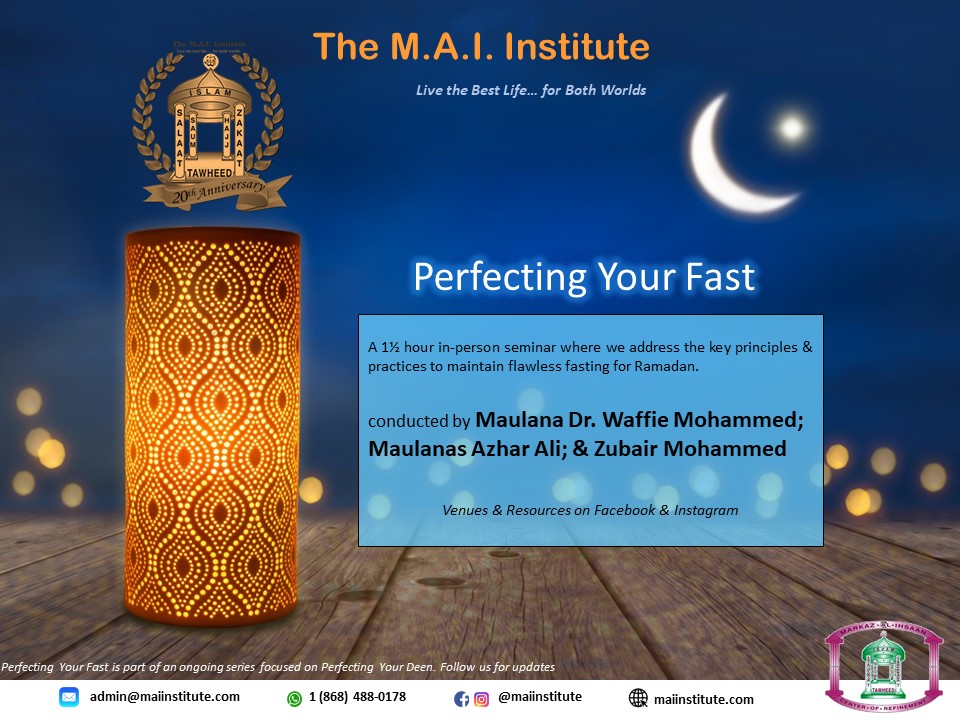Ramadan & Eid
Category Archives:Ramadan & Eid

Ramadan: Rekindling the Warrior Spirit
His eyes blurted open. Was someone in the room with him? Idris lay still and frozen on the bed, listening for any sound of movement.
His eyes were wide open now, getting accustomed to the darkness of a 3.30 am morning. He could hear his fan oscillating and beyond that, the ticking of the wall-mounted clock…. Tick. Tick. Tick. The air was cold against his exposed skin, with his bedsheet bunched up under his right shoulder, warm with the body heat.
As he lay awake in bed a flood of memories from his military night exercises came over him. Being woken at 2 am, 3 minutes to gear up, and then out into the yard amidst the yelling of the Drill Instructor while he and the rest of the platoon scrambled into formation.
Idris purged those thoughts from his brain. That experience was a lifetime ago. Oh! Suhoor. Right. Idris got out of bed groggily, and wiped his hand over his eyes and face. Prepare the meal. Eat. Fajr. And then head out to work. He rose and went to attend to his Suhoor. This isn’t like boot camp, he grinned at the thought. This one he did voluntarily.
The mental and physiological discipline takes one out of the domain of civilian comforts and into the territory of warrior conditioning…

Ramadan is upon us, and once again we enter the month of fasting and extra worship. This year it promises to be somewhat normal, relative to the past 2 years. There might even be some aftari to attend. I wonder where would be having, and what menu would dominate the landscape.
Expect to hear, if you haven’t already, proclaimed loudly from the mimbars on Jummah – “Fasting is prescribed on you as it was on those before you,” and “The devil is chained” and so forth. And of course, we cannot forget the same question by our peers – “Yuh fasting owa?” or otherwise, “how you making out?” as we shovel the buss-up-shut or fried rice into our faces relentlessly. Fun times with friends. But this is on one level.
There’s a deeper and much more personal effect of Ramadan on us individually. Almighty Allah tells us in the Qur’an:
“…Allah intends every facility for you; He does not want to put to difficulties. (He wants you) to complete the prescribed period, and to glorify Him in that He has guided you; and perchance ye shall be grateful.” (Quran 2:185)
The mental and physiological discipline takes one out of the domain of civilian comforts and into the territory of warrior conditioning. Hazrat Umar ibn Abdul Aziz is reported to have said:
“The best jihad is the struggle against desire” (Al-Adab Ash Shar’iva 131)
Also we are told in the Qur’an:
He has succeeded who purifies the soul, and he has failed who corrupts the soul. (Qur’an 91-9-10)
As it was most likely meant to. Wake up early, have a meal, pray, and go about your day. Relinquish food and drink for the entire day, and yet still function as you need to. Be very mindful of your conduct in every situation lest your fast is in vain. We are told in ahadith:
“When any one of you is fasting on a day, he should neither indulge in obscene language, nor raise the voice; or if anyone reviles him or tries to quarrel with him he should say: I am a person fasting….” (Sahih Muslim Book 35, Number 2566)
‘Whoever does not give up evil and ignorant speech, and acting in accordance with that, Allah has no need of his giving up his food and drink.” (Sunan Ibn Majah Chapter 9, Number 1689)
“There are people who fast and get nothing from their fast except hunger, and there are those who pray and get nothing from their prayer but a sleepless night.” (Sunan Ibn Majah Chapter 9, Number 1690).
“I call myself a peaceful warrior, because the battles we fight are on the inside” Socrates
“He who conquers himself is the mightiest warrior” Confucius
Hasten to break the fast – but not too early, pray… repeat for 30 days. Meanwhile, as the days go by dehydration begins to kick in, impacting your patience and demeanor – some persons get very irritable and edgy while fasting. That, alongside irregular sleep hours and missed meals, begins to erode your judgment and decision-making capacities.
Missing a meal and disrupting daily habits all serve to invoke exhaustion and headaches, acid reflux, muscle cramps. For some, concentration becomes a challenge and the brain begins to flutter. Fasting takes its toll, even though it is embedded with physical benefits. Perhaps this is why we are told in Islam:
“O ye who believe! Fasting is prescribed to you as it was prescribed to those before you, that ye may (learn) self-restraint” (Quran 2:183)
The one who strives in the way of Allah the Exalted is he who strives against his soul. (Ahmad 23445)
It echoes eerily of being at a barracks, woken up for a random night exercise, obeying the command of the Drill Sargent, and undergoing some grueling exercise before you get back to base and some semblance of sanity. Or undergoing the rigors of daily training over the weeks you are there.
Going into Ramadan, we undergo our own version of military training. Annually. We condition our Nafs – our ‘civilian’ selves, habits and fancies, if you will, to come under our control. The thing is, doing this in the midst of your everyday routine can make it a cumbersome exercise. Perhaps this is why we are told in the Hadith:
“Every act of the son of Adam is for him, except fasting. It is (exclusively) meant for Me and I (alone) will reward it. Fasting is a shield… By Him, in Whose Hand is the life of Muhammad, the breath of the observer of fast is sweeter to Allah on the Day of judgment than the fragrance of musk. The one who fasts has two (occasions) of joy, one when he breaks the fast he is glad with the breaking of (the fast) and one when he meets his Lord he is glad with his fast.” (Sahih Muslim Book 35, Number 2566).
Doing the exact same in the front-lines battling for survival is a different story, however. You tend to think about the sacrifices and irritants less, and focus more on navigating the terrain and staying alive. This is what you are prepared for in your formative training – metamorphosis from being subjected to your whims and cravings to being in charge of your physical, mental selves.
And while military conditioning is accompanied by a skillset to stay alive in the physical world, and conquer the enemy combatant, as Muslims we undergo moral and spiritual conditioning, with our physical and mental selves. We disrupt our schedules, we abstain, we regulate our conduct, worship more, give more in charity… all to conquer our Nafs and the whisperings of Shaitan.
Our battle is against our own selves, and we are commanded to do this, so that we come out stronger, in greater control of our desires, and better prepared for facing the battles that can erupt around us or within us for the rest of the year. All for the sake of Allah and in submission to His command. It may well be in recognition of this that we were told in Islam,
“Every (good) deed of the son of Adam would be multiplied, a good deed receiving a tenfold to seven hundredfold reward. Allah, the Exalted and Majestic, has said: With the exception of fasting, for it is done for Me and I will give a reward for it, for one abandons his passion and food for My sake.” (Sahih Muslim Book 35, Number 2567)
As for him who feared to stand before his Lord and he restrained himself from his desires, then Paradise will be his refuge. (Qur’an 79:40)

EID BEFORE SAWINE: A HISTORICAL VIEW OF MUSLIMS IN TRINIDAD
MAI Institute Islamic History Team: We have come to associate Eid in Trinidad with sawine and other sweet meats (like the ‘orange cockset’) that were introduced by the East Indian immigrants during the period of Indentureship. We acknowledge that although the conditions were very unfavorable for many of them, the immigrants at that time were fortunate to be allowed to stay in their families and carry their family names, keep aspects of their cultures, and practice their religions. Through this fact, the almost 15% Muslims of the approximately 145,000 labourers who came across during the indentureship period were able observe the month of Ramadan, the celebration of Eid and general adherence to religious tenets. John Morton in 1916 observed that Muslims were able to construct rudimentary mosques, and it was not uncommon to see at some point during the day a labourer stop work, perform prayer and then resume work for the day.
But little is known or shared about Islam before the period of indentureship and their introduction of the iconic sawine to commemorate Eid-ul-Fitr. Many assume that Islam accompanied the introduction of African slaves to the country, who were all forced into conversion and their Muslim identity was erased. But historical accounts add interesting bursts of contrasting colors to this sombre past.
According to research conducted on pre-Columbian Amerindian society, the presence of Islam in this hemisphere extends to past 1000 years, and predates the arrival of Columbus by 6 centuries. From historical accounts and relics (for example the maps of Abul Hasan al-Mas’udi 889 C.E. and Piri Re’is), to similarities in language and culture (especially of Lybian/Kufic influences), to Mandinka inscriptions indications found in Minas Gerais, the hemisphere – and its inhabitants – was familiar with the presence of North African and Adulasian Muslims from as early as 7th century CE. These are, however, growing areas of research, and contradict Spanish accounts of meeting “primitive, animal-like people” in the Caribbean region.
Following the Spanish conquest and the ensuing European colonization period, the introduction of slaves from Africa saw a number of tribes present on these shores, including the Muslim-dominant Haussa, Mandigo and Falani tribes. While many were acculturated into European religion, language and customs, the Muslim identity was persistent.
The formation of the Mandingo society by Yunus Muhammad Bath (himself a slave who claimed to be the Sultan of Yulliallhad Alimant Animan tribe) was a means of pooling resources to buy and then free Mandingo slaves – with the ultimate aim of returning to Africa (some of whom did).
The influx of Africans from the disbanded British West Indian Regiment also saw Muslims arrive, settling in different part of the country, and especially notably Manzanilla. Of these, the outstanding character of Muhammad Sisei emerged. After joining Yunus Bath in Port of Spain, he sailed to England and came under the ‘friendly protection’ of John Washington of the Royal Geographical Society, from whose account much of Sisei is known and has been published. Sisei ultimately returned to his homeland in the Gambia in Africa, but not before leaving an indelible impression on the history of the African Muslims in the western world.
Interestingly, one of the legacies of this time is the mosque founded in Biche (presently ASJA Biche #1 Masjid), which by local accounts was established by ex-slave and free immigrant African Muslims, and which accommodated indentured labourers assigned to the area, before being left in their (indentured labourer) control as the African Muslims migrated (by some accounts further north into Valencia, and by other accounts into Port of Spain).
The local history of Muslims in Trinidad and Tobago represent a microcosm of the diversity that is woven into the rich tapestry of our Islamic identity. In contemporary society, they have left a sterling example of conviction and constancy in the face of severe adversity that is echoed down the ages, and by all Muslims worldwide in this month of Ramadan. May Almighty Allah bless the efforts they started, and guide us to peace and prosperity.
The MAI Institute Islamic History Team traces not only the traditional history of Islam, but also the presence of Islam in the region and country, and its evolution. For more, visit https://maiinstitute.com

What Ramadan Means to Me – Guardian
Ramadan means ‘to burn’. And it really does feel like it. Having to avoid food and drink (amongst other things) from break of dawn through sunset means I feel the burn in my stomach, at several points throughout the day. Sometimes in my throat as well, when I am required to talk a lot.
To me, Ramadan is a means of submitting willingly to the command of Allah. Islam tells me I have to avoid all these things for this period of time, but it also says I have to guard my conduct, my thoughts, manners. Arguing, obscenities, evil and ignorant speech have all been mentioned specifically. If I don’t, all I stand to gain from fasting would be hunger and thirst, and that’s a heavy price to pay, if you ask me. Thankfully this year, with the Covid restrictions, it’s easier to achieve this since I have no choice but to dissociate with some persons in my social circle for a while, and I am driving less, so the interaction with errant drivers is reduced.
As such, generally I use this time to reset – physically, mentally and spiritually. It helps me to in part be more aware of my behaviour and ‘burn away’ petty comforts and irritants; build a stronger relationship with Allah; and be reminded of those less fortunate who have to face this involuntarily throughout the year. I am required to wake up at 4 am to have a meal before I start the fast. That is a discipline in itself and requires some reconditioning. I strive to schedule my day more in times with the 5 daily prayer, so that I can perform these on time. I usually find myself having to power through whatever is required to be done at work, regardless of how hungry or thirsty (or sleepy) I am. And of course, because I am doing this to obey the command of Almighty Allah, I am encouraged in Islam to not complain about it – it’s something I should be doing willingly.
My 2 daughters, aged 9 and ‘nearly 6’, are usually spared during the week – on weekends they have a go, and fast for shorter periods during the day. So they break the fast at 10 am, and then 2 pm (in theory), but with a short recess at 12 noon (which can continue for maybe an hour, depending on what they are eating). They get most excited at the time to break the fast each day. They help set the table, maybe help me with some cooking (my wife doesn’t like me cooking nor the girls helping me, because it means she has a bigger mess to clean – we are limited to making pholouries only at this point), and of course not wanting to eating a single thing when it’s time to eat, because… kids.
From this experience, I would like others to know that something as simple as fasting in the way we do can helps to not only strengthen our resolve and willpower, and boost our spirituality or relationship with God directly, but also helps take stock of our behaviour and train of thought, and give a better understanding and appreciation of those less fortunate.
Maybe persons don’t have to fast exactly as we do, but should find any means that works for them to boost those areas in themselves – so they too can enjoy the resulting feeling of contentment and absolute peace.
Faheem Mohammed

Perfecting Your Fast for Ramadan
We are in a time when we are open to the world of information, misinformation and disinformation… all coming at us on our phones on demand, wherever we are. This is great for instant access, and for inquiry, but also exposes us to a range of different practices, justifications and interpretations, with the result being added confusion or frustration to do the right thing.
In the advent of Ramadan 2021, in the face of quarantined and restricted mobility, much activity has gravitated to online spheres, where the debacle of information spread and accuracy remain major concerns. To mitigate this, the MAI Institute executed a series ‘Perfecting Your Fast for Ramadan’, to cover the Fiqh of Ramadan and ensure that persons have the comfort, and confidence, to know they are doing the right thing.
The resources developed and highlights of our outreach program are all available at https://maiinstitute.com/ramadan, and the aim is to keep adding to it so that you can get full, accurate and unbaised information to Perfect Your Fast for Ramadan, gain the most out of the month, and build your relationship with the Almighty.
May Almighty Allah reward all our intentions and our efforts in this month and throughout, Insha Allah. Ameen.